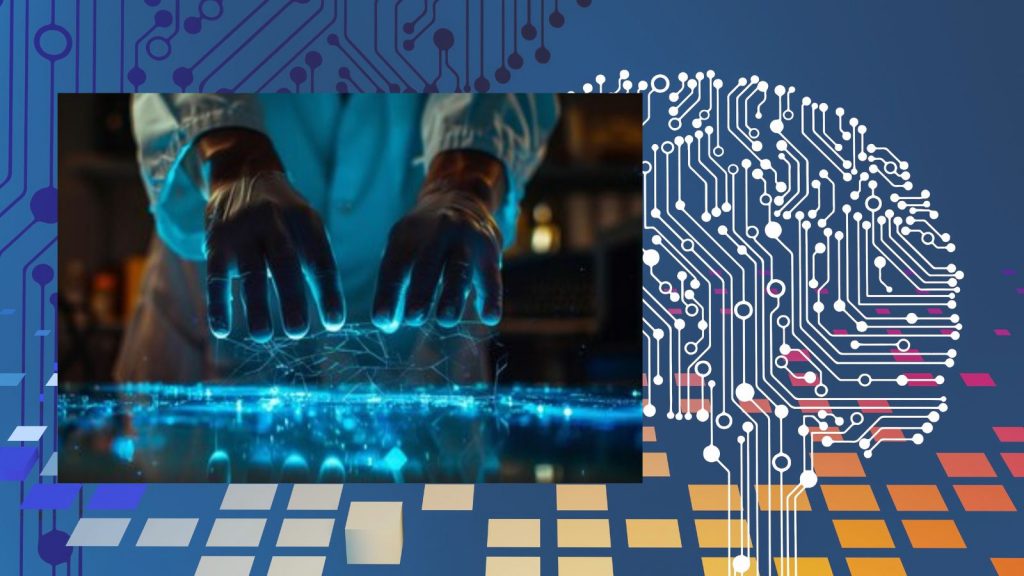Generative AI has recently emerged as an innovative tool in numerous fields – most significantly scientific discovery by combining deep learning algorithms with large-scale data processing techniques such as AlphaFold’s folding mechanisms for solving complex problems in biology, medicine and energy. We examine its role in speeding scientific advancement and its potential to revolutionize research across numerous fields in this article.
AlphaFold as an Effective Protein Structure Prediction Tool
AlphaFold from DeepMind stands out among generative AI advancements as one of the key advances. AlphaFold revolutionized protein structure prediction for biologists; being able to accurately predict three-dimensional structures from amino acid sequences is crucial in understanding how proteins work as well as creating drugs to treat diseases.

AlphaFold revolutionizes drug discovery. Instead of depending on experimental techniques like X-ray crystallography or nuclear magnetic resonance (NMR) spectroscopy to identify protein structures – which could often take years – AlphaFold uses artificial intelligence algorithms to accurately and quickly predict these structures within days with remarkable precision and speed, dramatically shortening drug discovery timelines. AI’s predictive ability also proves invaluable during drug discovery processes: many diseases involve misbehaving proteins that interfere with normal functions – this allows researchers to target such faulty proteins with precision thus speeding the development of novel treatments such as cancer, Alzheimer’s or Parkinson’s treatments more rapidly.
AI and Antibiotic Discovery: Addressing Drug Resistance
Generative AI has also proven invaluable for the discovery of novel antibiotics. As global health threats such as drug-resistant pathogens increase, antibiotic use becomes ever less effective; now AI models are helping identify novel compounds that act as potential remedies.
In an innovative study by MIT researchers, an AI model developed using artificial intelligence identified Halicin as an antibiotic effective against several strains of bacteria that had developed resistance to other medications. Furthermore, using AI, researchers were able to rapidly analyze hundreds of millions of chemical compounds through traditional means using traditional identification processes – providing vital aid for fighting superbugs while potentially leading to the identification of even stronger antibiotics shortly.
Generative AI for Energy: Design of Materials for Improved Batteries
Generational AI has quickly emerged as an invaluable asset in energy research. Researchers use AI models to design materials with specific properties – higher conductivity or longer lifespan – that enhance energy storage devices like batteries. As renewable energies take hold, high-performance batteries that store and release energy efficiently have never been more crucial; AI models help researchers design these high-performing materials with precise designs tailored to improving lithium-ion and other energy storage devices’ effectiveness.
Researchers are employing AI to simulate the behaviour of hundreds of potential materials for battery electrodes – critical components that affect efficiency and durability – which they hope can quickly identify those most suitable for further evaluation, drastically cutting development time and costs for new materials, particularly crucial when working towards sustainable energy future. AI’s analysis can quickly pinpoint promising candidates that should undergo further trials quickly reducing time and expense related to testing new ones – especially essential when dealing with advanced technologies like electric vehicles (EVs) or grid energy storage which both play key roles.
Synthetic Data and Its Role in Scientific Collaboration
Generative AI also plays a critical role in producing synthetic data, which has particular utility in fields like healthcare and biomedical research. Sharing real data may be restricted due to privacy considerations; synthetic data allows researchers to create datasets that mimic its statistical properties without disclosing sensitive information – this makes collaboration between scientists across borders much simpler, hastening scientific progress in fields like genomics, drug development and personalized medicine.
Synthetic data can also be used to train AI models, helping them enhance predictions and analyses without depending on scarce or difficult-to-obtain real-world information – something particularly useful in fields that demand large volumes of high-quality data collection such as climate science or astronomy.
Ethical Considerations and Challenges in Healthcare IT Systems
Although generative AI holds great promise for scientific discovery, it also poses serious ethical concerns. AI models’ capacity to generate new data and predict complex biological structures raises serious ethical risks such as the creation of harmful biological agents or unethical data manipulation; there also remains the challenge of training AI on diverse and representative datasets to avoid bias that might result in incorrect or potentially damaging conclusions from AI models.
As AI continues its rapid advancement, research programs must establish clear guidelines to protect privacy and ensure equitable distribution of AI discoveries. Policymakers and researchers must work collaboratively on frameworks that guarantee ethical AI development for responsible innovation.
Generative AI’s Future in Science
Generic AI offers tremendous promise to scientific research. As its models become more sophisticated, AI may play a greater role in climate science, quantum computing and even space exploration. AI’s capacity for data analysis and hypothesis generation enables scientists to tackle some of humanity’s toughest problems from developing energy-efficient technologies to finding cures for genetic illnesses.
Over the coming years, AI can only become increasingly prominent as an enabler of science, accelerating discoveries that hold the promise of changing our planet for good.
Lastly
Generative AI has revolutionized how scientists approach difficult problems, from protein structure prediction and antibiotic discovery to energy storage materials, by speeding up discovery and increasing accuracy during research. AI technology’s rapid advance is creating new opportunities for scientific breakthroughs previously unimaginable – while ethical concerns must also be considered to ensure it serves everyone well.
Related Article:
6 Essential Data Terms Every Business Needs to Know
Different Between Data Science and Data Analytics

Leave a Reply